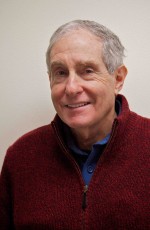Q: Can you describe this other stakeholder in 200-250 words?
David Ehrenfeld is a Biology professor at Rutgers
University. He attended Harvard University for undergraduate and medical
school. In 1963, he received his MD from Harvard. In 1967 he attended The
University of Florida to further his career and receive a PhD in zoology. Being
a very well-rounded doctor, Dr. Ehrenfeld’s opinions are very valid. He has the
knowledge to integrate de-extinction with how it will effect everyday life. With
the knowledge that Dr.Ehrenfeld received his MD in 1963, we can gather that he
is not the youngest of scientists. He is an older man with grey hair and
glasses. He also comes off this way in his speech. In his TED speech,
Dr.Ehrenfeld had to sit while reading off a script he had prepared whereas
every other speaker had known their arguments enough to speak without a prompt
and with slides. Another note is Dr. Ehrenfeld’s speech was very harsh. He
spoke as if everyone in the room was lesser than he and that it was common
knowledge why de-extinction is not realistic. Although Dr. Ehrenfeld did make
compelling arguments, the way he delivered them could force an audience to
rebel against it for the sake of not giving in to his brute attitude.
Q: Can you identify three specific claims being made by this stakeholder?
"If it works, de-extinction will only target a very few species and it's extremely expensive" 7:23
"Do we undercut conservation if the public...is led to believe that extinction is only temporary?" 8:24
"...but it may not be a real passenger pigeon and I don't think it's gonna bring passenger pigeons back from extinction" 3:14
Q: Can you explain how valid these claims are? Objectively, how much weight do these claims carry? How credible are they?
Dr. Ehrenfeld's claims are very valid. He spoke of how conservation is based off that fact that extinction is forever. If the public is reassured that species can be brought back via de-extinction, there is no telling how much of the worlds species would be slaughtered to extinction. Like I stated earlier, Dr. Ehrenfeld has an MD and a PhD in zoology. This gives him tremendous knowledge of both people and animals. His claims are very credible.
Q: Can you explain how these claims are similar and/or different to the other stakeholders? Be clear and precise - does this stakeholder have anything in common with others involved in the debate? Who do they have the least in common with? Why?
Dr. Ehrenfeld has a very different viewpoint on de-extinction than my first stakeholder, Dr. Fernandez-Arias. Dr. Ehrenfeld does not advocate for de-extinction while Dr. Fernandez-Arias does. However, Dr. Ehrenfeld, does not necessarily share the same ideals as others that are opposed to de-extinction. Most other opposition from the publlic is on the basis of morality and ethical reasons rather than science.

Solutions Online "File: David Ehrenfeld, head shot, April 2014 jpg" April 2014 via Wikimedia Commons. Attribution-ShareAlike 3.0 Unported
No comments:
Post a Comment